 American Philosophical Society
American Philosophical Society Athenaeum of Philadelphia
Athenaeum of Philadelphia Bryn Mawr College Special Collections
Bryn Mawr College Special Collections Chester County Archives
Chester County Archives Chester County Historical Society
Chester County Historical Society City of Philadelphia, Department of Records, City Archives
City of Philadelphia, Department of Records, City Archives Curtis Institute of Music Special Collections and Archives
Curtis Institute of Music Special Collections and Archives Drexel University, Archives & Special Collections
Drexel University, Archives & Special Collections Drexel University, College of Medicine, Legacy Center
Drexel University, College of Medicine, Legacy Center Franklin and Marshall College
Franklin and Marshall College Free Library of Philadelphia
Free Library of Philadelphia German Society of Pennsylvania
German Society of Pennsylvania Hagley Museum and Library
Hagley Museum and Library Haverford College Quaker & Special Collections
Haverford College Quaker & Special Collections Historical Medical Library of the College of Physicians of Philadelphia
Historical Medical Library of the College of Physicians of Philadelphia Historical Society of Pennsylvania
Historical Society of Pennsylvania Independence Seaport Museum, J. Welles Henderson Archives & Library
Independence Seaport Museum, J. Welles Henderson Archives & Library Jefferson University, East Falls Campus: Paul J. Gutman Library, Special Collections
Jefferson University, East Falls Campus: Paul J. Gutman Library, Special Collections LaSalle University Special Collections
LaSalle University Special Collections Lehigh University Special Collections
Lehigh University Special Collections Library Company of Philadelphia
Library Company of Philadelphia National Archives, Mid-Atlantic Region
National Archives, Mid-Atlantic Region Pennsylvania Horticultural Society McLean Library
Pennsylvania Horticultural Society McLean Library Philadelphia Museum of Art Archives
Philadelphia Museum of Art Archives Presbyterian Historical Society
Presbyterian Historical Society Princeton University Special Collections Library
Princeton University Special Collections Library Quaker Meeting Records at Haverford College Quaker & Special Collections and Friends Historical Library of Swarthmore College
Quaker Meeting Records at Haverford College Quaker & Special Collections and Friends Historical Library of Swarthmore College Rosenbach Museum & Library
Rosenbach Museum & Library Rowan University Archives and Special Collections
Rowan University Archives and Special Collections Science History Institute
Science History Institute State Library of Pennsylvania
State Library of Pennsylvania Swarthmore College
Swarthmore College Temple University Libraries Special Collections Research Center
Temple University Libraries Special Collections Research Center Union League of Philadelphia
Union League of Philadelphia United Lutheran Seminary
United Lutheran Seminary University of Delaware, Special Collections Department
University of Delaware, Special Collections Department University of Pennsylvania
University of Pennsylvania Villanova University
Villanova University Wagner Free Institute of Science
Wagner Free Institute of Science Widener University
Widener University William Way LGBT Community Center: John J. Wilcox, Jr. Archives
William Way LGBT Community Center: John J. Wilcox, Jr. Archives Winterthur Library
Winterthur Library
-->
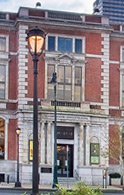 |
Academy of Natural Sciences, PhiladelphiaThe Academy of Natural Sciences, Philadelphia, established in 1812, is the oldest natural sciences research institution in the Americas. It is recognized internationally for its vast collections, research, exhibits, and educational programs. The Academy's collection of over 17 million cataloged natural history specimens and artifacts is among the ten largest in the United States. The Academy Archives, a collection of one-of-a-kind documents, tells the story of the Academy from its founding through its nearly two centuries of existence: a story written originally by quill pen and now in bytes and bits. The Archives contain a vast array of unique manuscripts, art, artifacts, film, photos, field notes, illustrations, and memorabilia. They reflect the Academy's long tenure as one of the finest natural history museums in the world, and certainly the oldest in the Americas. The collection is comprised not only of administrative records and official Academy documents, but also an abundance of scientific and personal unpublished materials contributed by research scientists and others associated with the Academy. (Photograph at left by Will Klein). |
 |
American Philosophical SocietyThe American Philosophical Society, the oldest learned society in the United States, was founded in 1743 by Benjamin Franklin for the purpose of "promoting useful knowledge." In the 21st century, the APS sustains this mission in three principal ways. They honor and engage leading scholars, scientists, and professionals through elected membership and opportunities for interdisciplinary, intellectual fellowship, particularly in our semi-annual Meetings. They support research and discovery through grants and fellowships, lectures, publications, prizes, exhibitions, and public education. They serve scholars through a research library of manuscripts and other collections internationally recognized for their enduring historic value. The American Philosophical Society's current activities reflect the founder's spirit of inquiry, provide a forum for the free exchange of ideas, and convey our conviction that intellectual inquiry and critical thought are inherently in the best interest of the public. |
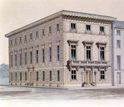 |
Athenaeum of PhiladelphiaThe Athenaeum of Philadelphia is an independent member-supported library and museum that engages members, scholars and the interested general public to join actively in the cultural and intellectual life of Philadelphia and participate in historical, literary and educational activities. To that end, the Athenaeum must be a diligent steward of its National Historic Landmark building and its collections of books, manuscripts, architectural drawings, photographs, and historic objects. The Athenaeum was founded in 1814 to collect materials "connected with the history and antiquities of America, and the useful arts, and generally to disseminate useful knowledge" for public benefit. Annually the Athenaeum's nationally significant collections attract thousands of readers: graduate students and senior scholars, architects, interior designers, museum curators, and private owners of historic buildings. It provides the Philadelphia region with a resource of first resort on matters of architecture and interior design history, particularly for the period 1800 to 1945. |
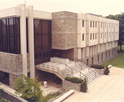 |
Bryn Mawr College Special CollectionsThe Bryn Mawr College Special Collections includes rare books, manuscripts, the college archives, works of art on paper, and ethnographic and archaeological objects. The rare book collection contains approximately 50,000 volumes, and includes extensive collections of late medieval and early modern works, among them more than 100 medieval manuscript volumes and more than 1000 15th century printed books. In addition, there are strong collections on the history of women, European interaction with Asia, Africa and the Americas, and British and American literature. The manuscript collections are particularly strong in women's history, including the papers of Bryn Mawr president and early woman's rights activist M. Carey Thomas; papers of many prominent women associated with Bryn Mawr, including poet Marianne Moore, New Yorker editor Katharine Sergeant White, artist Anne Truitt, and archaeologists Lucy Shoe Meritt and Dorothy Burr Thompson; and extensive collections of letters and diaries written by Bryn Mawr students from the time of its founding in the 1880s. These collections are supported by a graphics collection ranging from the 15th century to the present, including 7,300 prints, 3,500 drawings, and 13,000 vintage photographs. |
 |
Catholic Historical Research Center of the Archdiocese of PhiladelphiaCatholic Historical Research Center of the Archdiocese of Philadelphia was created in 1989 by His Eminence Anthony Cardinal Bevilacqua to collect, preserve, and make available to the public the historical sources illuminating the growth of Catholicism in the United States. Catholic Historical Research Center of the Archdiocese of Philadelphia's collection includes records that document the history of the Archdiocese of Philadelphia as well as the collections of the American Catholic Historical Society of Philadelphia, the oldest Catholic historical society in the country. The bulk of materials from the latter collection, specifically printed materials including newspapers, journals, and pamphlets published in the United States, span the mid 19th to the early 20th century. Archdiocesan records include the sacramental registers (baptismal and marriage records) of those parishes located within the present Archdiocese since their founding. Catholic Historical Research Center of the Archdiocese of Philadelphia provides researchers with various services including historical research assistance, genealogical research, an excellent reference library, and photoduplication of approved research materials. |
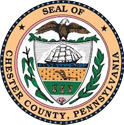 |
Chester County ArchivesLocated in the Chester County Government Services Center (601 Westtown Road, Suite 080, West Chester, PA 19380), the Chester County Archives is administered by the Chester County Historical Society in cooperation with the County of Chester. Established in 1982, the Archives is committed to preserving and making available the historic government records of Chester County. Holdings include estate files, vital records (births, deaths and marriages), deeds, taxes and many other historically significant county records. |
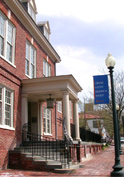 |
Chester County Historical SocietySince its founding in 1893, the Chester County Historical Society Library has collected materials documenting the diversity of the county from the 1680s to the present. The library houses collections of printed volumes (25,000), and manuscripts (500,000) including letters, diaries, and other personal papers, business and organization records, land and legal documents, pamphlets, broadsides, newspapers, audiovisual material and genealogical material related to the history of the county and surrounding areas. For questions about the library and its holdings, please contact library@chestercohistorical.org Chester County Historical Society Photo Archives: The Photo Archives holdings include over 80,000 historic images from the 1840s onward and documents the people, landscape, businesses, organizations and events in the southeastern Pennsylvania region. The photo collection is accessible by visiting the library reading room during open hours. For questions about the photo archives, please contact photo@chestercohistorical.org. |
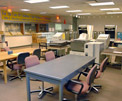 |
City of Philadelphia, Department of Records, City ArchivesThe City Archives is the official historical memory of the City of Philadelphia. Within its 20,000 cubic feet of holdings may be found records that appeal to a very wide spectrum of interests. In addition to providing reference to various City departments, the City Archives has been a resource for graduate and undergraduate students and persons preparing doctoral dissertations and scholarly publications. Its holdings have been of especial interest to social historians. For persons doing research on the City's under classes, records of the Alms House and its successor, Philadelphia General Hospital, 1751 to late 1940s; of the County Prisons 1790 to 1948, and of the City and County criminal courts, 1750s to 1874, are especially fertile fields for research. Records of county taxes, 1773 to 1851, may be used for determining the economic and class structure of the City and its surrounding districts, townships and boroughs. Tax records and land records are valuable sources for research on capital accumulation. Records of the City surveyors, road records of the Court of Quarter Sessions, and records of the City Council's Watering Committee and of the City's Water Department are invaluable for tracing the development of the City's infrastructure. Minutes and files of the Board of Health and Health Department record efforts to control disease in an urban setting. The records of the City Planning Commission and of the Department of Licenses and Inspections, show the City's efforts to control urban blight while the records of the Department of Public Welfare (now Human Services) show the City's efforts to deal with the human consequences of urban blight. The City Archives is also a magnet for genealogical researchers. In fact, the most frequent users of the City Archives are patrons who are interested in their family history or who are professional genealogists doing research for others. The City Archives holds the earliest and longest continuous run of birth and death records of any political subdivision in the Commonwealth. Registrations of birth and death records begin on July 1, 1860 and continue to June 30, 1915. However, there are also a cubic foot of late registrations filed under an 1867 supplement to the vital statistics act which include births dating back to 1829; and an earlier form of death record known as a cemetery return which dates from 1806 to June 30, 1860. The City Archives holds marriage records from July 1, 1860 to December 31, 1885 for which we issue certificates, and copies of marriages from the Orphans Court Division that date from 1886 to 1915. It also holds naturalizations of the City and County Courts for the periods 1794 to 1904 and 1914 to 1930. Other records which would be of interest to genealogical researchers include Police roster and roll books for the period 1854 to 1925; deeds of Philadelphia County, 1683 to 1952; mortgages of Philadelphia County, 1736 to 1963; city directories, 1785 to 1930 and 1935 to 1936; Department of Personnel, roster cards; and records of Blockley Almshouse and the County prisons. A sampling of the Archives' more than two million photographs may be searched online from the City's award winning site, http://phillyhistory.org |
 |
Curtis Institute of Music Special Collections and ArchivesThe Curtis Institute of Music Special Collections and Archives are a part of the John de Lancie Library, located within the Rock Resource Center in Center City, Philadelphia. The Archives, formally designated in 1999, holds over 340 linear feet of materials, including 66 donated manuscript collections, more than 400 audiovisual materials, and 8000 photographs related to the schools' founding, its concurrent and closely linked history with the Philadelphia Orchestra, its institutional history, and faculty and alumni material. Significant collections include the letters of Mary Louise Curtis Bok, the Curtis Institute's founder; the Lynnwood Farnam papers (featuring detailed organ specifications and photographs); scrapbooks and diaries from a wide selection of alumni; and oral histories with notable figures in Curtis history. Special Collections, holding over 2500 items, reflects the nature of Curtis's founder in a wide-ranging collection of composers' letters, autograph manuscripts, and first edition scores and books donated to Mrs. Bok and the school over the last 90 years. |
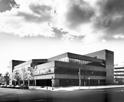 |
Drexel University, Archives & Special CollectionsThe Drexel University Archives & Special Collections acquires, preserves and makes available records, manuscripts, visual materials and publications related to the history of Drexel University. The Archives has material related to Drexel's founders as well as Drexel students, faculty, academic departments, administrative offices, and campus organizations. The Special Collections house rare books and manuscript collections, with a focus on incunabula; the history of printing and fine press; the history of Philadelphia; the Drexel family; and the history of education. |
 |
Drexel University, College of Medicine, Legacy CenterThe Legacy Center is the repository for records documenting the history of the College and its predecessor institutions, including Woman's Medical College of Pennsylvania and Hahnemann University. The Special Collections on Women in Medicine and Homeopathy emerged from these institutions' unique and original missions to educate women physicians and to teach homeopathy. The histories of women in medicine and women's health (internationally) and of homeopathy (internationally) are represented through textual and visual materials documenting individuals, institutions and organizations. The collection consists of over 4,000 linear feet of materials dating from 1502 to the present, with the bulk of the materials ranging from 1848-1990. |
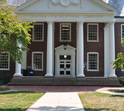 |
Franklin and Marshall CollegeIn addition to preserving the visual and written institutional record of the College in the college archives, Franklin and Marshall Archives and Special Collections also preserves the unpublished, one-of-a-kind personal papers of prominent local individuals and families in the manuscript collection, and maintains additional collections of historical published/printed materials such as rare books, maps, prints, posters, photographs, newspapers and unique sub-collections of material such as the German-American Imprint Collection consisting of newspapers, books, almanacs, fraktur and broadsides printed in the German Language in North America. |
 |
Free Library of PhiladelphiaThe Free Library of Philadelphia was founded in 1891 as the city's first public library system. Its Rare Book Department, among the largest in American public libraries, maintains collections of rare and valuable printed books, manuscripts, and works on paper and parchment from the ancient world through the 20th century. Collections include illuminated manuscripts, Americana, common law, children's literature and illustrations, and Pennsylvania German Fraktur. Children's Literature Research Collection: Finding aids on this site Rare Book Department: Finding aids on this site |
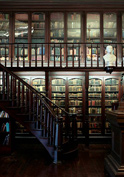 |
German Society of PennsylvaniaFounded in 1764, The German Society of Pennsylvania is America's oldest German organization. Its Joseph P. Horner Memorial Library, housed in a beautiful 19th century reading room, holds one of the largest private collections of German-language books in the U.S., with over 70,000 volumes. The library's collections include the historic reading library of the German Society, with rare holdings in German and American history, literature and culture since the 18th century. The German American Collection contains a wealth of material documenting all aspects of German American life, beginning with the first settlers in Germantown in 1683. In addition to books, the library houses sizable collections of 19th century Philadelphia German newspapers, periodicals, pamphlets, and manuscripts. The manuscript collections focus primarily on Philadelphia-area individuals and organizations from the 19th and 20th century, including the Society itself. |
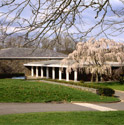 |
Hagley Museum and LibrarySet on 235 acres along the Brandywine in Wilmington, Delaware, Hagley Museum and Library is the site of the gunpowder works founded by E.I. du Pont in 1802. This example of early American industry includes restored mills, a workers' community, and the ancestral home and gardens of the du Pont family. Hagley Library furthers the historical study of American business, technology, and design. The library's collections include personal papers and business records ranging from eighteenth-century merchants tot he modern telecommunications industry and detail the historical relationship between enterprise and society. It holds the archives of more than a thousand businesses within over 37,000 linear feet of manuscripts, 290,000 published materials, two million audiovisual items, and 320,000 digital items. Audiovisual and Digital Initiatives Department: Finding aids on this site Manuscripts and Archives Department: Finding aids on this site |
 |
Haverford College Quaker & Special CollectionsHaverford College Quaker & Special Collections is responsible for maintaining the College's unique and rare materials. The principle collections include the world-renowned Quaker Collection, College archives, rare books and manuscripts, and fine art. The Quaker Collection consists of some 35,000 printed volumes and 300,000 manuscripts. Holdings span the history of Quakerism from 17th-century Britain to the present day in many parts of the world. Materials include the Jenks Collection of early books and pamphlets, meeting records, organization and family papers, journals and diaries, English and American Quaker serials, audio-visual materials that document the history and operations of Haverford College from its founding in 1833 to present. Rare books cover all fields of knowledge with particular strengths in literature (particularly Shakespeare and the work that influenced him), natural history, science, and American History. Non-Quaker manuscripts include such collections as the Charles Roberts Autograph Letter Collection which is comprised of some 20,000 letters from a wide variety of authors, and the J. Rendel Harris "Oriental" Manuscript Collection of 13th- through 19th-century Hebrew, Latin, Arabic, Syriac, Armenian and Eithiopic scrolls and codices. Finally, we maintain the College's collection of art including 3,000 fine art photographs ranging the history of the genre, hundreds of prints by European, American and Asian artists, numerous oil paintings, sculpture, and Ancient Greek, Middle Eastern, and African artifacts. |
 |
Historical Medical Library of the College of Physicians of PhiladelphiThe College of Physicians was founded in 1787 and its library in 1788. Following a period of relative dormancy, the College was revitalized in the mid-nineteenth century, and the Library began an important period of growth around the time of the Civil War. From then until well into the post-World War II period, the College Library was one of the four great medical libraries in the United States and the central medical library of the Delaware Valley. Through gifts, bequests, and dedicated purchase funds, the Library also became a great medical rare book library, and in 1953, a Historical Collections department was established. During the second half of the twentieth century, the world of medical librarianship was transformed throughout the country, as society libraries like the College's declined in importance relative to the rapidly growing academic medical center libraries. Recognizing that the libraries of the regional medical schools had grown significantly and largely replaced the College Library as providers of the current clinical and biomedical literature, in 1996, College governance formally designated the Library as a "Historical Library." The entire Library therefore took on the character of what had been the Historical Collections department. The Historical Medical Library holds more than 375,000 medical books and journals published through the late twentieth century. More than 400 are incunabula and 12,000 are pre-1801 imprints. There are strong holdings in anatomy, dermatology, neurology, pathology, and ophthalmology, and particularly rich collections on homeopathy, tuberculosis, and yellow fever. Manuscripts include medieval illuminated manuscripts, hundreds of 18th and 19th century student lecture notes, and papers of leaders of American medicine, such as Robley Dunglison, George Bacon Wood, S. Weir Mitchell, Joseph Leidy, and William W. Keen. The records and archives of medical societies, organizations, and institutions, both extinct and extant, local and national, constitute a major resource for the scholar. The archives of the College of Physicians itself are especially important, for the College has addressed a variety of professional and community concerns since its founding. The College Library also maintains a research level collection of current scholarship in history of medicine |
 |
Historical Society of PennsylvaniaThe Historical Society of Pennsylvania holds approximately 26,500 linear feet of archival collections; some 600,000 books, pamphlets, serials, and microfilm reels; and over 300,000 graphic items. Our collections document the political, commercial, and social history of the colonies and the United States in the seventeenth and eighteenth centuries; the mid-Atlantic states prior to the Civil War; and the Commonwealth of Pennsylvania and the Philadelphia region from the colonial period to the present. HSP cares fro the largest family history and ethnic studies collections in the mid-Atlantic region, bolstered by acquisition of the holdings of the Balch Institute for for ethnic Studies in 2002 and those of the Genealogical Society of Pennsylvania in 2006. Other collection strengths include the histories of architecture, art, business, community and social service, politics, women, and wars and military service. |
 |
Independence Seaport Museum, J. Welles Henderson Archives & LibraryThe Independence Seaport Museum's J. Welles Henderson Archives & Library is a regional maritime research center, offering resources that document Philadelphia's relationship with its rivers and the greater Delaware River Valley. The Library houses more than 13,000 volumes, 9,000 ship plans and a significant collection of manuscripts, photographs, maps, charts, and rare books. Collection strengths include naval science and architecture, area shipyards, nautical instrument manufacture, early US Navy, port development, and seamen's welfare and education. The collection spans from the late eighteenth century to the present. |
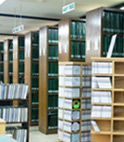 |
LaSalle University Special CollectionsThe Department of Special Collections in the Connelly Library houses a diverse range of materials, from 15th century illuminated devotionals to subject collections treating contemporary social issues. Bodies of work include literature, music, films, art, archival material and ephemera. Our collections explore a variety of themes in aural, narrative and illustrative form. Special Collections maintains a focus on acquiring, cataloging and housing unique material that is tied to undergraduate pedagogy and is freely available to researchers. |
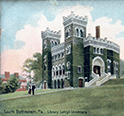 |
Lehigh University Special CollectionsLehigh University Special Collections serves as the repository for the University's collections of rare books and manuscripts, and for holdings relating to its own history. It encompasses a rare book collection of over 25,000 volumes, with first editions of English and American literature from the 17th to the 19th centuries, strengths in travel and exploration, natural history and ornithology, and works of historical significance in science and technology. Materials relating to the University include documents and publications of the University, papers of faculty members, and memorabilia from the University's history. In addition, Special Collections is the repository for Lehigh theses and dissertations. Holdings in the history of technology concentrate on large scale construction, including a number of classic and seminal works on bridge building and design, and construction with iron and steel. Special Collections also holds manuscripts and personal papers, in addition to papers relating to the University's history. |
 |
Library Company of PhiladelphiaThe Library Company of Philadelphia is an independent research library with collections documenting every aspect of the history and background of American culture from the colonial period to the Civil War. A rare book collection of national importance, its holdings number 500,000 books, 75,000 graphics, and 150,000 manuscripts. The Library Company was founded by Benjamin Franklin and a group of friends in 1731 as a subscription library. It is the only major colonial American library that survives virtually intact. Throughout the 18th and 19th centuries, the Library Company collected books, newspapers, pamphlets, and prints reflecting all the varied interests of its learned and cosmopolitan clientele. These materials have now been reorganized to form an unparalleled collection of primary research materials. The collection is continually augmented by significant gifts and purchases. The following areas receive particular attention: Afro-Americana; American science, technology, architecture, agriculture, natural history, education, philanthropy, and medicine; German Americana; American Judaica; Philadelphia area history; the history of printing, book collecting, and reading; the women's rights movement; household and family life; and printmaking, mapmaking, and photography in Philadelphia. |
 |
National Archives at PhiladelphiaThe National Archives at Philadelphia is one of 14 Regional programs of the nation's official record keeper, the National Archives and Records Administration. These Regional programs, together with the Presidential Libraries and the Washington, D.C.-based programs, preserve and make accessible the historically significant evidence of America's national experience from the first Continental Congress to modern times. In trust for the American people and open to the public, the National Archives enables every citizen to inspect for themselves the record evidence of the American democracy. The National Archives at Philadelphia holds over 110 million individual historically significant records, in paper and other media, for over 80 federal agencies and the district courts in the states of Delaware, Maryland, Pennsylvania, Virginia and West Virginia, as well as copies of selected microfilmed records for the entire country. As Philadelphia was the most nation's capital from 1790 through 1800, these regional records are singularly important in understanding the development of the federal government, as the Constitution evolved from parchment into a network of agencies and programs. Court cases are among the richest holdings. Holdings cover institutions such as the Philadelphia Navy Yar, the Merchant Marines, the National Park Service, NASA's Langley Research Center, the DuPont Company Coca Cola, and Good Humor; subjects such as intellectual property (trademarks, copyrights and patents), treason, fugitive slaves, free speech, freedom of assembly, immigration and citizenship, numismatics, domestic and international trade, Civil War, and freedom of religion; and individuals from Patrick Henry, Robert Morris, Robert E. Lee through Thomas Edison, and Thurgood Marshall. In support of NARA's strategic goal of civic literacy, the National Archives at Philadelphia supports several Teaching American History grant-funded projects, and National History Day. |
 |
Pennsylvania Horticultural Society McLean LibraryThe Pennsylvania Horticultural Society is a private, non-profit organization, headquartered in downtown Philadelphia. Formed shortly after PHS's founding in 1827, the McLean Library reflects American horticultural trends both historically and currently. It serves the needs of amateur and professional horticulturists, landscape architects, garden historians, and researchers. It is used by the public and by the Society's members and volunteers. The collection supports the horticultural and urban greening activities of the staff. The Delaware Valley is known as "America's Gateway to Gardens" and has a long tradition of intense interest in gardens and arboreta of every size and kind. The library's Pennsylvania Collection reflects the Mid-Atlantic region's horticultural history. The McLean Library houses a rich collection of Delaware Valley seed and nursery catalogs, 1860-1950. The Mary Helen Wingate Lloyd Collection consists of significant European and American gardening imprints from the 16th to 20th centuries. The Library houses the archives of the Philadelphia Flower Show and the Society, as well as the archives of local gardening concerns such as the Ritttenhouse Flower Market, and local garden club activities. The Library also houses nearly 30,000 images of the Philadelphia Flower Show, pre-World War II estate gardens of the Philadelphia area, and garden and landscape images from around the world, 1930s to 1960s. |
 |
Philadelphia Museum of Art ArchivesThe mission of the Philadelphia Museum of Art Archives is to collect, preserve, and make available non-current records of enduring value for the institution. It is the primary source of information relating to the Museum's history, including past exhibitions, activities, events, and interactions with significant figures and organizations in the world of art. The Archives also holds records relating to affiliated organizations both past and present, such as the former 69th Street Branch Museum and the Rodin Museum, as well as several important manuscript collections that relate in some way to the institution's history, including the papers of artists, collectors, and scholars. Appointments to use the archives are required. |
 |
Presbyterian Historical SocietyOrganized in 1852, the Presbyterian Historical Society is the oldest denominational archives in the United States and serves as the national archives for the Presbyterian Church (U.S.A.) and many predecessor denominations. Its holdings include more than 200,000 titles reflecting the history of the Presbyterian traditions in America. Special holdings include 16th-century works by and about John Calvin and other Reformers, as well as early American imprints and mission-related foreign imprints. The archival holdings consist of approximately 30,000 cubic feet of official records and personal papers. These include records of congregations, presbyteries, synods, and General Assembly agencies of the current and some predecessor Presbyterian and Reformed denominations in America. These are supplemented by the personal papers of significant Presbyterians, with a particular emphasis on mission history in this country and abroad. The society also serves as the archives for ecumenical organizations including the Federal and National Council of Churches and the American Sunday School Union. |
 |
Princeton University Special Collections LibraryThe Princeton University Special Collections Library holds materials that span five millennia and five continents, and include around 300,000 rare or significant printed works; 30,000 linear feet of textual materials, ranging from cuneiform tablets to contemporary manuscripts; a wealth of prints, drawings, photographs, maps, coins, and other visual materials; the Cotsen Children's Library; the Princeton University Archives; and the Scheide Library. The department's holdings range from an Egyptian Book of the Dead from around 1250 BCE, an original printing of the Declaration of Independence and the Gutenberg Bible, as well as such large archival collections as thousands of Islamic codices, the papers of Toni Morrison, and the official records of the American Civil Liberties Union. Many materials have been digitized and are freely available to the world online. Materials housed in the Special Collections Library, including the Mudd Manuscript Library, are open to Princeton University faculty, staff, and students, as well as to visiting researchers. The Department is unique within the Library in that its mission includes serving the general public as well as the Princeton community. Cotsen Children's Library: Finding aids on this site Graphic Arts Collection: Finding aids on this site |
 |
Quaker Meeting Records at Haverford College Quaker & Special Collections and Friends Historical Library of Swarthmore CollegeTThe Friends Historical Library of Swarthmore College and Haverford College Quaker & Special Collections are two major depositories for the records of North American yearly meetings of the Society of Friends. For researchers' convenience, the two libraries have collaborated on this joint catalog. In some cases, a single meeting's records may be divided between Haverford and Swarthmore, but all the records are described together in this catalog. Both Haverford and Swarthmore hold records from Philadelphia Yearly Meeting and Baltimore Yearly Meeting, with Haverford holding the majority of Orthodox meetings and Swarthmore holding the majority of Hicksite meetings. Swarthmore is the official depository for New York Yearly Meeting. Additional yearly meetings and individual monthly meetings have opted to use Haverford or Swarthmore as their official depository. |
 |
Rosenbach Museum & LibraryThe Rosenbach Museum & Library was founded on collections acquired in the first half of the 20th century by Dr. A.S.W. Rosenbach and his brother Philip, preeminent dealers in rare books, manuscripts, and art. Today the Rosenbach is both a museum and a working research library open to all interested researchers. The collections are especially strong in Americana, British and American literature, and book illustration, and include treasures noted for extraordinary significance, rarity, and physical condition. Largest among its collections are the papers of Modernist poet Marianne Moore, illustrator Maurice Sendak, and the Rosenbach Company itself. The brothers' 19th-century town house welcomes visitors into a personal world where great collectors lived among their collections. |
 |
Rowan University Archives and Special CollectionsThe Rowan University Archives and Special Collections are located on the third floor of the Campbell Library. This space welcomes researchers, genealogists, historians, authors, and Rowan University faculty and students. The University Archives hold many materials detailing the rich history of Rowan University, including photographs and dance cards from the institution's early Normal School years in the 1920s. The largest, most researched collection was donated by Frank H. Stewart, a Philadelphia businessman and private collector. Mr. Stewart willed much of his collection to Rowan University upon his death in 1948. When presented, it was the largest private collection of New Jersey history, and is frequented by researchers, genealogists, historians, authors, and Rowan University faculty and students. The Stewart Collection consists of pamphlets, photographs, genealogical materials, and books. |
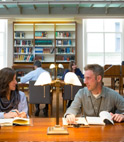 |
Science History InstituteThe Science History Institute Archives is part of the Othmer Library of Chemical History. The archives collect, preserve, describe, and make available the unique, unpublished materials that document the past 200 years of our chemical history. Spanning over 6,000 linear shelf feet, these collections are a major attraction for scholars of the modern chemical and molecular sciences. Collections include papers of outstanding scientists, industries, and professional organizations. Collection strengths include the fields of scientific instrumentation, chemical education, materials science, quantum chemistry, and chemical engineering. |
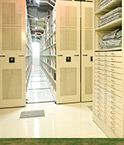 |
State Library of PennsylvaniaThe State Library of Pennsylvania collects and preserves our written heritage through materials published for, by, and about Pennsylvania. Collection strengths are Pennsylvania Newspapers, Genealogy, Pamphlets, and General Assembly Collection. |
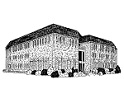 |
Swarthmore CollegeSwarthmore College's major archival holdings, the Peace Collection and Friends Historical Library, are significant research collections for the history of American social reform. The Swarthmore College Peace Collection gathers, preserves, and makes accessible material that documents non-governmental efforts for nonviolent social change, disarmament, and conflict resolutions between peoples and nations. The Friends Historical Library (FHL) reflects the Quaker origins of Swarthmore College and is one of the outstanding research facilities in the world for the study of Quaker history. Additionally, FHL maintains the Swarthmore College Archives and the archives of the Borough of Swarthmore Historical Society. |
 |
Thomas Jefferson UniversityThe Thomas Jefferson University - Center City Archives & Special Collections points to where the university is heading by documenting where it has been by acquiring, preserving, and making available for research official university records, personal papers, memorabilia, and other materials of enduring historical value that document the development of Jefferson and its constituent institutions, affiliates, and alumni. The Thomas Jefferson University - East Falls Archives & Special Collections provide a wealth of creative inspiration and educational opportunities for students, scholars, and professionals through its collection of costumes and textiles, manuscripts, personal papers, memorabilia, and other materials of historical value that document the development of the textile industry and the history of Jefferson- East Falls. Thomas Jefferson University - East Falls Archives & Special Collections: Finding aids on this site |
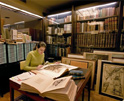 |
Temple University Libraries Special Collections Research CenteThe SCRC is the principal repository Temple University Libraries' rare books, manuscripts, archives, and University records. We collect, preserve, and make accessible primary resources and rare or unique materials, to stimulate, enrich, and support research, teaching, learning, and administration at Temple University. In 2011, Temple University Libraries' Special Collections Research Center took shape, merging the staff and collections of our former Special Collections and Urban Archives departments. The SCRC now includes these collecting areas: Contemporary Culture Collection; Conwellana-Templana (University Archives); Manuscripts and Archives; Paskow Science Fiction Collection (Science Fiction and Fantasy); Philadelphia Dance Collections; Philadelphia Jewish Archives Collections; Printing, Publishing, and Bookselling Collections; Rare Books; and Urban Archives. |
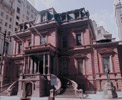 |
Union League of PhiladelphiaThe Union League of Philadelphia library specializes in American Civil War, American and European history, World War I and II, regional history, biographies and early 20th century travel. The library is housed in the historic Union League House in Philadelphia, one of the country's pre-eminent private clubs, founded in 1862 to support Abraham Lincoln, the administration, and the Union cause. |
 |
United Lutheran SeminaryThe United Lutheran Seminary hosts two regional archives on its two campuses, the Lutheran Archives Center at Philadelphia, which is the Northeast Regional Archives (Region 7) of the Evangelical Lutheran Church in America (ELCA), and the Region 8 Archives at Gettysburg, PA. Collections include personal papers of clergy, theologians, and church workers; archives of church organizations; and records of congregations. The Lutheran Archives Center at Philadelphia's service area is limited to Eastern Pennsylvania, New Jersey, all of New York, and New England. It carries on the work of its predecessors in the first Lutheran Church organization in America, the Evangelical Lutheran Ministerium of Pennsylvania and Adjacent States, founded on August 15, 1748 by Henry Melchior Muhlenberg. The archives was recognized as a part of the church organization in 1792. This archive has been housed on the campus of the Philadelphia location since 1889 and is located in the undercroft of the Brossman Learning Center. It also contains the institutional records of the former Lutheran Theological Seminary at Philadelphia. The Region 8 Archives at Gettysburg, PA, has a service area of Central Pennsylvania, Maryland, Delaware, and Washington, DC. Containing the records of closed Lutheran congregations within that region as well as the archives of the ELCA synods of the region and the predecessor synodical bodies, including Central Pennsylvania Synod and the Maryland Synod. The Region 8 archives are managed and located within the ULS Library on Seminary Ridge in Gettysburg, PA. The Gettysburg campus also serves as the official archival repository for United Lutheran Seminary and the former Lutheran Theological Seminary at Gettysburg. |
 |
University of Delaware, Special Collections DepartmentHoldings of the Special Collections Department of the University of Delaware Library includes approximately 200,000 books, serials, and other printed items, nearly 4,500 linear feet of manuscripts, as well as significant collections of historic maps, prints, photographs, broadsides, periodicals, pamphlets, ephemera, and realia from the fifteenth to the twentieth century. The collections complement the Library's general collections with particular strengths in the subject areas of the arts; French, English, Irish, and American literature; history and Delawareana; the history of printing and publishing; horticulture and landscape design; and the history of science and technology. The University of Delaware Archives is separately administered and comprises university records and history of the institution. |
> |
University of PennsylvaniaThe Annenberg School for Communication Library Archives collects, preserves, and makes available for research materials pertinent to the interdisciplinary field of communication and its history. Holdings currently include the papers of scholars George Gerbner and Elihu Katz, and a vast collection of daytime and prime time television scripts from the 1950s through the 1990s. Finding aids on this site The Architectural Archives of the University of Pennsylvania encourages appreciation and understanding of architecture and its allied professions and their role in society through direct engagement with original works, particularly objects that record the evolution of architectural thinking and practice. It is home to the collections of more than 400 designers from the 17th century to the present, with a special focus on the comprehensive archives of a number of the twentieth century's most significant designers, including Louis I. Kahn, Robert Venturi and Denise Scott Brown, Lawrence Halprin, Ian McHarg, Edmund N. Bacon, and Anne Griswold Tyng. Part of the Weitzman School of Design, the Architectural Archives is located in the lower level of the Fisher Fine Arts building and also houses the Harvey & Irwin Kroiz Gallery. The Archives is open to the public for research by appointment. The Barbara Bates Center for the Study of The History of Nursing at Penn Nursing is the largest repository for primary source materials and rare books about the history of nursing in the world. The Center was founded in 1985 with the mission to ensure the production of historical knowledge, research, and scholarship on nursing, history, and healthcare. The Bates Center holds and extensive collection totaling nearly 2,000 linear feet of materials from 19th to 21st century hospital based nursing schools, visiting nurse societies and the personal papers of nursing leaders. The Center also serves as home to substantial special collections of over 3,000 rare books, glass slides, photographs, audio tapes, and films and a smaller amount of artifact holdings. Finding aids on this site The Biddle Law Library Archives preserves, promotes, and provides access to the the papers and records of three major legal organizations: The American Law Institute (ALI), the National Conference of Commissioners on Uniform State Laws (NCCUSL), and the National Bankruptcy Archives. The archives also houses a number of smaller collections, including the personal papers of early Penn Law Dean and ALI co- founder William Draper Lewis, Penn Law graduate and Philadelphia lawyer Bernard G. Segal, and United States Court of Appeals Judge David L. Bazelon. A collection of records from the law school includes the notes of various 19th century professors and students, minutes of the Alumni Society, and photographs. Paper and electronic finding aids are available online and by request. Finding aids on this site The Kislak Center for Special Collections, Rare Books and Manuscripts holds over 11,000 linear feet of manuscripts dating from 1000 A.D. to the present. The vast majority pertain to modern manuscript collections documenting American literary history, the performing and visual arts in the greater Philadelphia area, the history of science, American history, the history of India under British rule, and modern European history and culture in general. The collection also contains over 2000 Western codices produced before the nineteenth century; nearly 3,000 Indic manuscripts, the largest collection in the Western hemisphere; and approximately 200 items documenting the native languages of Mexico and Central America. Finding aids on this site The Library at the Herbert D. Katz Center for Advanced Judaic Studies holds approximately 200,000 volumes, including 32 (17 Hebrew and 15 Latin) incunabula and over 8,000 rare printed works, mainly in Hebrew, English, German, French, Yiddish, Arabic, Latin, and Ladino. The rare Hebrew editions offer specimens from a variety of Hebrew printing houses around the world; particularly strong are holdings of early modern rare books printed on the Italian peninsula, including nearly 20 percent of all Venetian Hebrew imprints. The CAJS Library special collections of non-print materials include 453 codices written in eleven different alphabets as well as in twenty-four different languages and dialects as varied as Armenian, Hebrew, Judeo-Arabic, Syriac, Yiddish and Telugu, a collection of ancient artifacts dating from ca. 2,500 BCE and nearly 600 medieval manuscript fragments from the Cairo Genizah. The Library's archive holds the institutional records of Dropsie College, its faculty, students, and library, the professional papers of some of its faculty, as well as the personal papers of over fifty Jewish American scholars and community leaders who lived in Philadelphia in the late nineteenth and early twentieth centuries. Among them are the papers of Isaac Leeser, Sabato Morais, Mayer Sulzberger, Moses Aaron Dropsie and Cyrus Adler. There are two significant Yiddish archival collections: the papers of B.Z. Goldberg and Elias Schulman as well as a number of valuable multi-media resources, including the Harvard Sheldon Jewish American Research Library and the recently acquired Lenkin Family Collection of Photography, which contains over 4,000 original 19th century photographs of the Holy Land. The most important recent acquisition was the gift in 2012 of the Arnold and Deanne Kaplan Collection of Early American Judaica, consisting of over 11,000 items. It is the foremost collection of its kind in the world, documenting Jewish life around the Atlantic world from the 16th - 19th centuries. Finding aids on this site The Penn Museum Archives is the institutional repository of the Penn Museum and the work of its archaeologists and anthropologists. Our collections include 2,500 feet of records; these records document the Museum's archaeological expeditions to every inhabited continent, the history of the Penn Museum, and the history of the practices of archaeology and anthropology. Further, we hold three-quarters of a million images and nearly one thousand reels of film. Finding aids on this site The University Archives and Records Center (UARC) serves the University community as a center for research, teaching and learning as well as center for the storage and management of inactive University records. The Trustees of the University of Pennsylvania established the University Archives and Records Center in 1945 and approved records management programs in 1954 and 1990. UARC's collections include a broad range of historically significant materials from the first paper records created by the Trustees in 1749 to the millions of electronic records of the present. These materials document the University's corporate or organizational origin and development as well as the many activities and achievements of its officers, staff, faculty, students, alumni, and benefactors. UARC's collections policies also extend beyond the institution itself and embrace the history of prominent persons associated with the University; the history of institutions of higher learning in the United States; the history of American intellectual life generally; and the history of the Philadelphia community in which the University lives. The collections consist of more than 14,000 cubic feet of records in many different formats, including visual archives and three-dimensional memorabilia.Finding aids on this site |
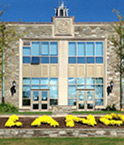 |
Villanova UniversityThe Villanova University Distinctive Collections, housed in Falvey Memorial Library, focuses on Augustiana, European imprints to 1800, Dime novels and popular cultural materials such as story papers, scrapbooks and ephemera, Hubbard/Roycrofter Press, Irish and Irish-American history, incunabula, and North American imprints to 1820. Also hosts University Archives and the Augustinian Historical Institute, and includes the digital surrogates of other Digital Partner institutional content. |
 |
Wagner Free Institute of ScienceThe Wagner Free Institute of Science, a National Historic Landmark founded in 1855, is a natural history museum and educational institution dedicated to providing free public education in the sciences. Both the building and the collections, including the Library and Archives, remain largely unaltered since the 1890s and provide an unparalleled vision of late-nineteenth century science, education, and museology. The Library contains some 45,000 monographs and serials on the natural and physical sciences, education, archaeology and anthropology, the pseudosciences, and photography from the seventeenth to the early twentieth centuries. The collection reflects the Institute's curriculum and the research interests of its faculty and staff over its history. The Library also oversees the Archives, which comprises the family, personal and business papers of William Wagner, the Institute's founder, and the Institutional records since its inception. The collections also include maps, prints, photographs, and glass lantern slides that were used to illustrate early course lectures. (Photograph at left by Tom Crane). |
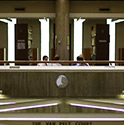 |
Widener UniversityWidener University traces its origins to Wilmington, Delaware, where it began in 1821 as a small Quaker school for boys. Since then, the school has been transformed numerous times, changing into Pennsylvania Military Academy, Pennsylvania Military College, PMC Colleges, Widener College, and finally Widener University. The holdings of the University Archives document much of this rich and diverse history. Online Web exhibits, including Oral Histories by PMC graduates, give a flavor of life as it was experienced by the many diverse students who have been educated here. Also housed in Wolfgram Memorial Library is the Sexuality Archives, with a mission to collect, preserve and make available to researchers, materials such as pamphlets, papers, newsletters, books, journals and audiovisual materials related to the history of Sexuality, Sexology and Sexuality Education as well as Widener's Human Sexuality program. |
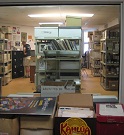 |
William Way LGBT Community Center: John J. Wilcox, Jr. ArchivesThe archival collection now known as the John J. Wilcox Jr. GLBT Archives of Philadelphia was originally established in 1976 and has been housed at the William Way Lesbian, Gay, Bisexual and Transgender (LGBT) Community Center since 1997. Dedicated to documenting Philadelphia's LGBT community, the collection consists of books, periodicals, organizational records, personal papers, ephemera, visual materials, and sound recordings concerning sexual minorities, the gay/lesbian rights movement, and the history of sexual minority communities with an emphasis on Philadelphia and the Delaware Valley. There are also materials on the women's movement of the 1950s to 1970s. The archival materials total nearly 300 linear feet of materials from 1918 to the present (most are from 1960 to the present). |
 |
Winterthur LibraryThe Winterthur Library includes the Collection of Printed Books and Periodicals, the Joseph Downs Collection of Manuscripts and Printed Ephemera, the Winterthur Archives, and the Visual Resources Collection. The Collection of Printed Books and Periodicals contains more than 100,000 volumes in open stacks adjacent to the main reading room, and a rare book collection of about 20,000 American and European imprints and nearly 8,000 trade catalogs in closed stacks. The collection focuses on the documentation of American household goods and their use, decorative arts and design, and the material culture of everyday life in America from the late 16th through the early 20th centuries. Named for Winterthur's first curator, the Downs Collection contains about 5,000 record groups. Downs consists almost exclusively of primary research materials, including personal and business accounts in the form of diaries, family papers, tax records, and letter books of craftspeople and merchants. In addition, the Downs Collection contains drawings (architectural, artistic, and amateur); wills and household inventories; children's toys and games; scrapbooks and journals; and fabric swatch books. An extensive microform collection, including copies of material owned by other public repositories and private individuals, supplements the manuscript holdings. The Winterthur Archives records the creation and development of Winterthur as a private estate and a public museum. The archives includes papers relating to Winterthur compiled by Henry Francis du Pont and his immediate family, as well as the records of Winterthur Farms and administrative documents of the museum. Visual Resources is made up of tens of thousands of photographs in the Decorative Arts Photographic Collection (DAPC) and the Photographic Index of American Art and Design (PIAAD). |